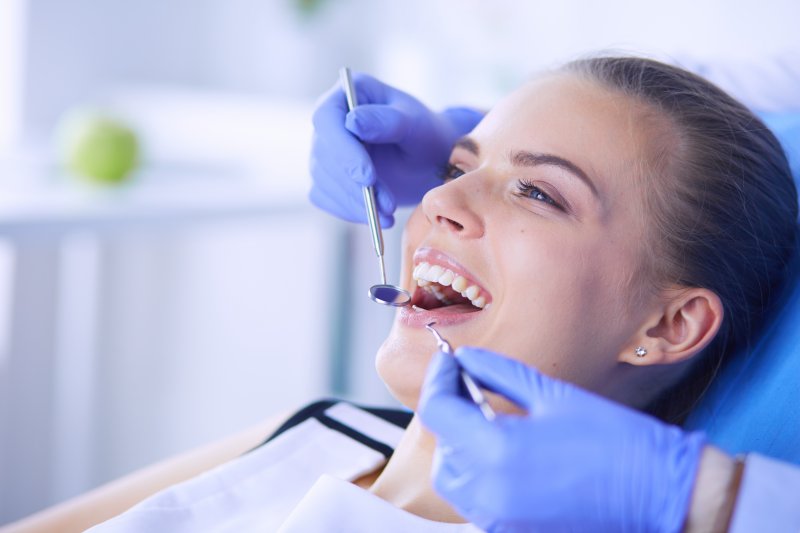
While April is known for spring weather and earthy holidays, it offers more than these positives. This period also hosts Oral Cancer Awareness Month – a time for people to learn and note the dangers of oral cancer. Over these next few weeks, you could honor the occasion and look into oral cancer screenings. Still, what if you don’t know much about the screening process? Rest assured – your Lincoln dentist has you covered. Read on to learn how dentists conduct oral cancer screenings.
Wait, Just What *Is* an Oral Cancer Screening?
You know how dentists closely assess your mouth at dental checkups, right? Well, an oral cancer screening is part of that process.
In short, oral cancer screenings are exams that check you for oral cancer. Many adult dental patients get them every few months, along with teeth cleanings. When necessary, they can also include extra tests to identify abnormal oral cells. The need for such tests tends to vary and depends on a dentist’s assessment.
Why are These Screenings Done?
By screening for oral cancer, dentists try to ensure its early detection. This result makes a patient more likely to have their cancer (if present) successfully removed and cured.
If you didn’t know, oral cancer is deadly once it spreads far enough. The condition’s 5-year survival rate drops to 69% when it reaches nearby tissues. Worse, roughly half of the diagnosed don’t survive past the five-year mark. Those who do often end up disfigured if the cancer is caught too late.
Thankfully, oral cancer screenings improve the odds. They can provide an early diagnosis that raises the 5-year survival rate to 86%! To that extent, they can practically save your life; they’re always worth getting.
What Does a Screening Look For?
An oral cancer screening is made up of visual and physical exams. For each assessment, dentists look at your gums, soft tissue, palate, and tongue for odd signs.
Dentists usually look for asymmetries during the visual exam. Notable signs like bumps, swellings, lumps, and sores can point to cancer. Therefore, a dentist may use a small light and mirror to look for them in your nose and mouth. They can also check the back of your throat for them with a tongue depressor.
As for the physical exam, dentists will touch areas that can contract oral cancer. That usually means moving their hands around your head, cheeks, and jaw, under the chin, and inside the oral cavity. Doing so can reveal odd masses that require further testing.
Having learned how dentists conduct oral cancer screenings, you can see their efforts in keeping your mouth healthy. Keep that fact in mind as Oral Cancer Awareness Month continues.
About the Practice
Olberding Dental is based in Lincoln, NE. Led by Dr. Louis Olberding, our practice takes pride in giving patients superior dental care. That means we offer custom services that span preventive, cosmetic, and restorative dentistry, as well as emergency oral procedures. Naturally, our office’s dental checkups include high-quality oral cancer screenings! For more details or to book a visit, you can reach us on our website or by phone at (402)-488-2325.
